Success is predicated on failure. Many, many, many times. – Patty McCordEvery entrepreneur, small business or startup must navigate hundreds of tough choices and questions when building a business.
A big part of growing a successful business is creating a workplace culture where your team members want to stay and grow with you. We wrap up Season 2 with a bonus episode that was live-recorded at the first-ever Open for Business Bootcamp at SXSW. On stage, host John Henry talks to seasoned entrepreneurs, including former Netflix executive Patty McCord and Executive coach Jerry Colonna about impacting a company’s culture in a positive way.
For instance, eBay seller and founder of eDrop-Off Corri McFadden admits her workplace culture changed dramatically as her team grew from 1 to 28. To keep her team motivated and incentivized, she offers an education stipend. Employees are excited to come back and share what they’ve learned, which pushes Corri and her teammates to pursue continuous learning in their passion areas and keep thinking outside the box.
There is also discussion around common pitfalls, like hiring someone who is just like you. Next thing you know, you turn around and there are 15 of you. The best approach is to look ahead and identifying the problems you need to solve and what skills are required to solve them. Knowing your problem first enables you to make a better hire.
This episode also gets into challenging situations, including having to fire someone. Corri shares how it’s easy to become invested in your employees – they can be an extension of your family. But if someone is underperforming and its negatively impacting your business, you have to be honest and address what’s not working.
In the end, John opens the floor up for questions from the SXSW audience. One listener asks: How do you measure the value of a potential new hire? The panelists’ answers may surprise you.
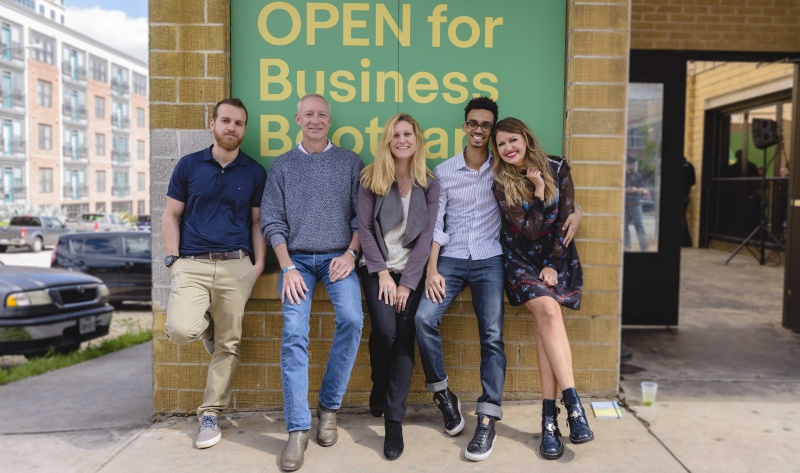
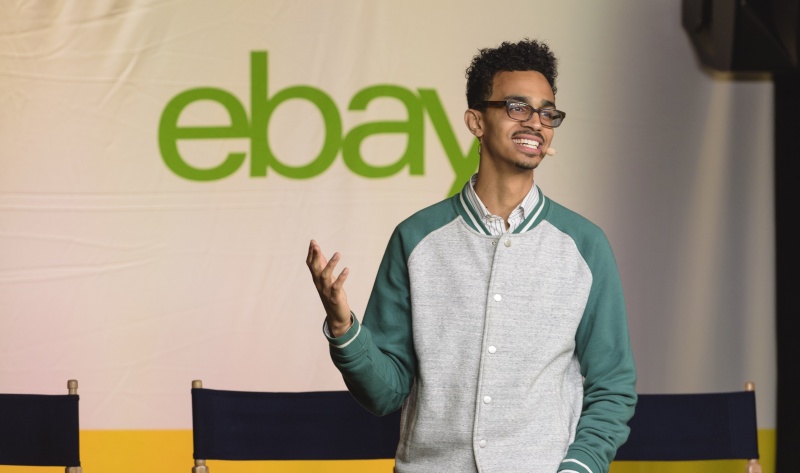
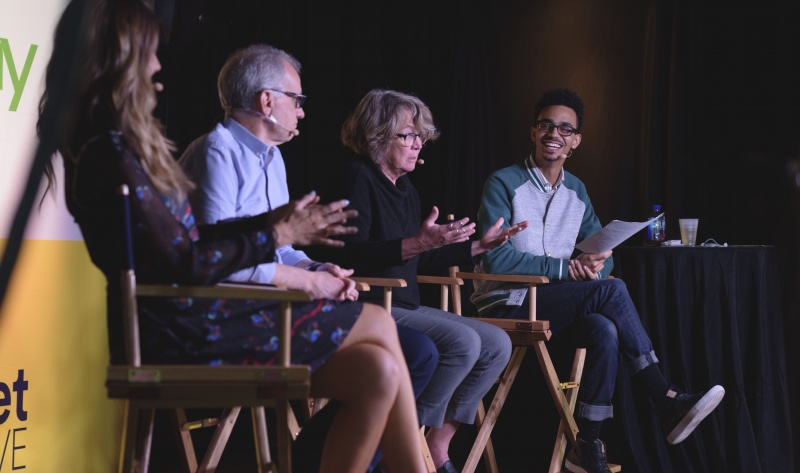


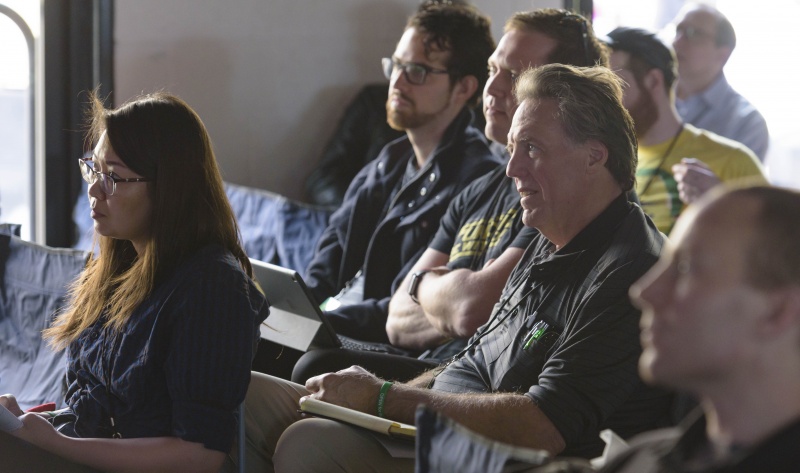
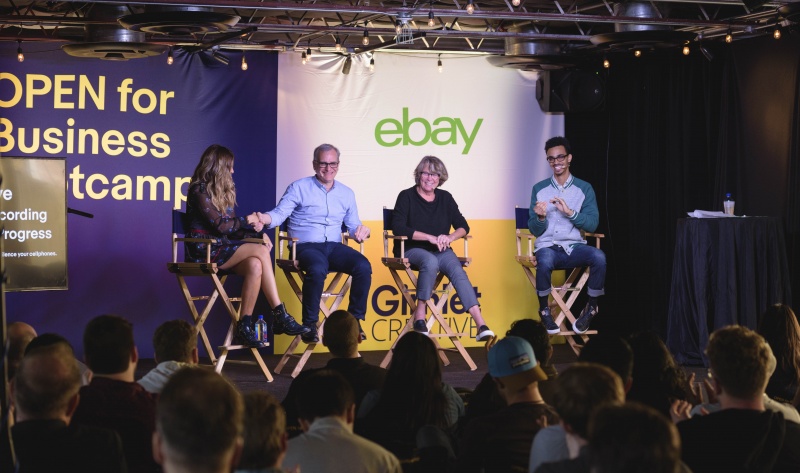
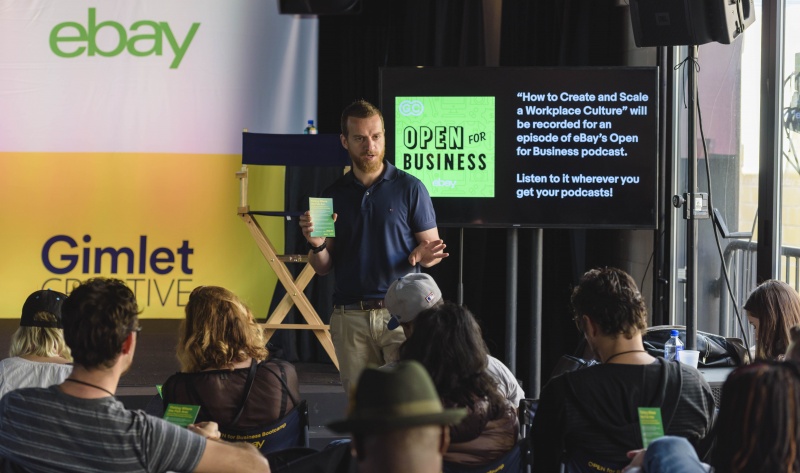
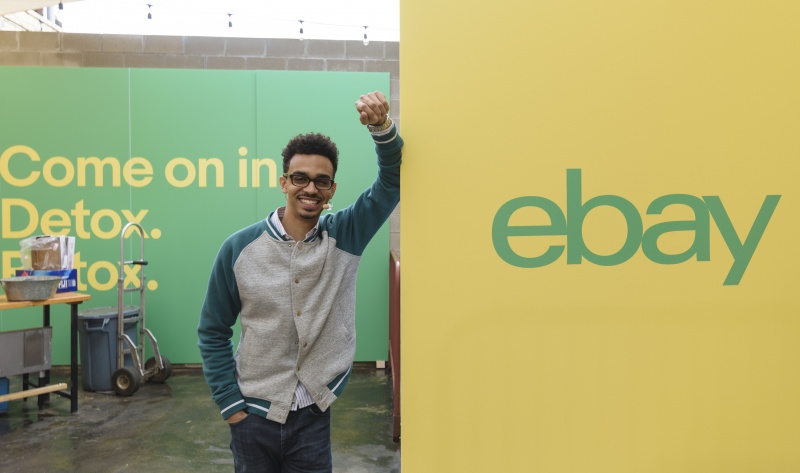
Episode 7: Hiring, Firing and Scaling: Creating a Workplace Culture
Featured Guest: Corri McFadden, Founder - eDrop-Off
When a business grows from 1 employee to 20 or more in the matter of months, how do you create a place where people want to work? How do you create a culture that reduces turnover? How can you be a better boss? In this episode, recorded before a live audience at SXSW, John Henry speaks to seasoned entrepreneurs about how the boss sets the right tone for the culture of an entire organization, no matter the size, and how to attract the right talent to drive productivity in the workplace.

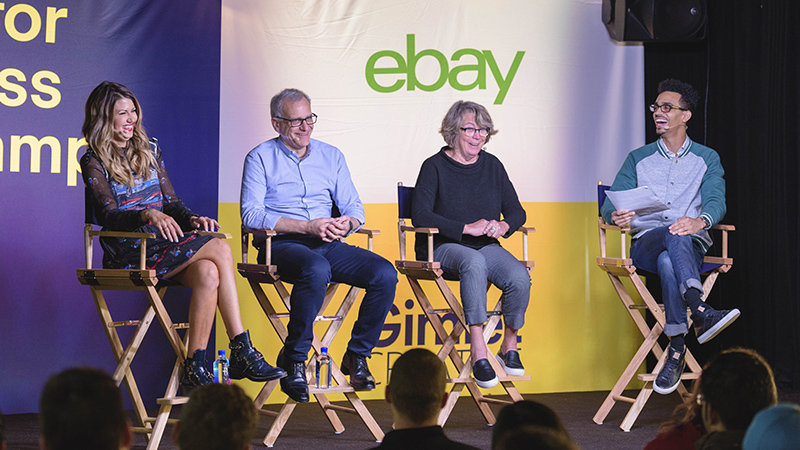
Your Guest

Corri McFadden
Founder - eDrop-Off
eDrop-Off Founder Corri McFadden knew she was destined to be an entrepreneur at an early age. As a child, Corri started selling candy on the school bus when she noticed there were no vending machines at school. At 22, Corri developed a business plan for eDrop-Off as a graduation portfolio project. She saw a void in the consignment market, skipped her college graduation to attend eBay Live!, and shortly thereafter, launched her business.
Today, eDrop-Off is a premier consignment destination to buy and sell designer and luxury fashion items. It has evolved into a multi-million-dollar company with an online site and retail store and a team of over 40 staff members. Corri has appeared on The Today Show, Entertainment Tonight, The Steve Harvey Show, and has starred in VH1’s reality TV show House of Consignment.
Episode Transcript
JOHN HENRY: Hey guys! Before we get started, I just want to let you know that we recorded this episode live, and as a result, there are a couple of live swear words. So if you’re listening with kids, you might want to put on your headphones.
JOHN HENRY: Hey guys! Before we get started, I just want to let you know that we recorded this episode live, and as a result, there are a couple of live swear words. So if you’re listening with kids, you might want to put on your headphones.
JOHN HENRY: From eBay and Gimlet Creative, welcome to a live taping of Open for Business. I’m John Henry and we're coming to you live from Stubb’s BBQ in Austin, Texas. We're recording this episode as part of eBay's Bootcamp for Business at South by Southwest.
This season, we brought you lots of stories and lessons about building a business from the ground up. A big part of building a business is hiring, and then creating a workplace culture where your team members want to stay and grow with you. So maybe you're a business of one and you're thinking about making your first few hires or maybe you’re a team of 20 trying to double your staff to meet new demand. Whatever your situation, how you hire can impact who you hire and who you hire impacts your company culture in a big way. So today we're going to be talking about how to create a company where people want to work and then scale that culture as your company grows.
Joining me here onstage in Austin is Patty McCord. She's the former Chief Talent Officer at Netflix and a legend in her field. Patty is a big influencer in hiring. Her approach to creating culture has helped change the way people work in Silicon Valley. She helped grow Netflix from a couple of dozen employees to a couple thousand by the time she left. Now she's principle of Patty McCord Consulting. Thanks for joining us Patty!
PATTY MCCORD: Thanks for having me.
JOHN HENRY: Also with us is Jerry Colonna entrepreneur and investor turned executive coach Jerry started lots of businesses. Some have been hugely successful, and some have failed. He's also been an investor. He’s a co-founder at Flatiron Partners, one of the original tech venture capital firms in New York City. Today, Jerry is taking what he's learned as an entrepreneur and investor and teaching CEOs how to be better leaders through his executive coaching firm, Reboot. Welcome Jerry.
JERRY COLONNA: Thank you. Thank you for having me.
JOHN HENRY: Certainly. And rock star entrepreneur Corri McFadden. She's the founder of eDrop-Off, a luxury consignment store based in Chicago. Corry founded her company in 2004 on eBay and has grown from a one woman operation to now 28 people and has bootstrapped it to be a multimillion dollar business. Thanks for joining us, Corri.
CORRI MCFADDEN: Thanks for having me. Hi everyone.
JOHN HENRY: All right. And with that Patty I wanna start with you.
PATTY MCCORD: OK
JOHN HENRY: Common pitfalls in hiring. You've hired more folks than probably anyone in this room. So as it relates specifically to small and growing teams, what are the most common pitfalls folks make when they're hiring?
PATTY MCCORD: Their friends, their neighbors whoever can fog a mirror and is willing to work for you. You know I think I often coach people and say there's three things you want when we start hiring early in a business. You want people who work really hard because it's hard work doing this stuff. And you want people who will do really hard work that really matters for your customers that you can afford and you want them to believe and the belief is probably a full 30% of it because all new businesses are weird ideas. Right? I mean if it was like a natural thing that somebody would have thought of, they would have already thought of it. So, that belief in what you're doing is really critical to being successful quickly, instead of just getting the work done. But believing in the success of the business.
JOHN HENRY: Jerry, you're an executive coach. You teach business, you teach CEOs how to be better leaders. One of them is in the room. So, I know your thing is all about authentic leadership and intentional leadership. Can you tell us what does that mean and why is that important?
JERRY COLONNA: Well, you know to follow on Patty’s point, especially if you're doing a startup people are coming, people have a million choices in terms of whether or not they want to work for you, whether or not they want to work hard for you. And so, having that belief is super important, and I'm not so sure it's about intentionality, as much as it is about authenticity. We want to believe in people who are actually real, and telling the truth is a core component of being real. And it's scary, because you're worried that if I tell the truth that this odd thing that I just started...I'm gonna create a consignment shop where people can drop off their goods for me to sell later on. And by the way, I don't have any idea whether or not it's going to work. And please take a pay cut in order to come work for me. Right? If we if we if we feel like if we tell the truth to that then all of a sudden we're not going to have any employees. But the opposite is actually true. Because then I can step into that situation and say wait a minute. In a world where I can't trust a lot of my leaders, that person over there? I can trust that person. And trust is that missing component. Trust is that currency that makes the difference.
JOHN HENRY: So when Patty mentioned belief are you then saying that in order to build that belief it stems with just being being honest?
JERRY COLONNA: Being real. And the first person you have to be honest with is yourself because too many folks who are starting a business are so afraid that they don't even tell the truth to themselves.
For example, okay get ready to bleep me out. How many people are willing to admit that they don't have a fucking clue as to how to do the job? Right? And I'll tell you I've made this joke many many times and everybody laughs. Well if everyone is laughing, why are we pretending that we're not making it up every single day? Now you're making it up every single day. Now go to work. Come on, you’ve got work to do! And it's OK.
PATTY MCCORD: Can I tell a Netflix story? So remember somebody had made some horrible management error. We thought something was going to happen and just didn’t. We were wrong. And one of the employees said to me, “Excuse me Patty but why didn't management see this coming. And I said, “cuz we make this shit up!” (LAUGHTER) You know, if we're going to look to another company that was trying to invent where- we’d copy ‘em! We would! We’re not afraid. We were just making it up.
JOHN HENRY: In my experience like-- being okay with being vulnerable has been such a huge part in building influence and trust in the staff like that. Does that tie into that honesty?
JERRY COLONNA: Well, if I can jump in on that. Yes, because it, right, imagine yourself you're working in an organization we've all worked there and the leaders are liars. You know, we even sometimes end up politically led by people who are lying. We're sort of sitting there and we're all in a room and we're all in this collective like delusional state and the leaders sort of sitting there saying we're going to go this way and this is where it's going to happen. And right Patty, you’re sitting there going: Bullshit!
Everybody knows it's not going to work. We all collectively get along with it. Right, so there's that scenario. Then there's the scenario where where the leader stands up and says “I don't know. I am unsure, but I believe and I have faith.” Who do you want to work for? Who do you want to work with?
JOHN HENRY: Corri, I've been to your shop. It's hustling and bustling in there. You got 28 people. What do you do to keep them incentivized to just come to work every day and grow with you?
CORRI MCFADDEN: Well when I started my company I was 22. It was me, myself and I. And kind of to piggyback off of what you guys were saying, like, I had no idea what the hell I was doing. I remember I had this idea that I was going to redefine consignment and it was this light bulb went off in the middle of the night. I was going to school for fashion design. Literally, went to school the next day, and I was like ‘This is what I'm going to do.’ My program director said, ‘That’s the worst idea I've ever heard.’ I was like ‘Sweet, you just fueled me like I'm going to go do it.’ And that was like what got me going.
And creating that culture has changed dramatically as the team has grown. Because in the beginning it was, I was motivated I was ready. I was lit. And I could get those people with me when you have a team of five and you guys are all there hustling towards that dream. But as it expands and as kind of the workplace has shifted. I mean we all kind of heard about millennials and kind of touch on that, which we won't get into right now. But I can say that these last two years for me have been a huge learning experience, and kind of redefining the culture in the company, and what keeps everyone motivated.
JOHN HENRY: So, what does keep everyone motivated?
CORRI MCFADDEN: So, for us we've kind of tried a variety of things. We have tried things such as you meet X, Y, Z metrics and you're working towards a free flight this quarter. So, we did one a couple quarters ago that you got a thousand dollars to American Airlines and basically you got a free flight. You meet X, Y and Z metrics as well as you are recognizing other people in the workplace for something good they have done for you or another, and you would give them an entry every month. So, it's kind of getting everyone integrated in different departments. It didn't work for us. It failed. Sometimes you have to pull back, reset and remind everyone why we're doing this and not let kind of their reaction discourage you. We’re like- okay we just need we need a reset here. We need to re-educate everyone.
Something that's worked particularly well for me because I am a small business I've got around 30 employees I don't have huge corporate dollars. I can't have a lactation room and smoothies and bean bags and all these other things you kind of hear going around. And good for everyone that works in that environment. But, we have done continuing education which has been a big one for us and giving them a stipend that they can use for the 12-month period. And you tell me what you want to go do. So, if you want to go to a leadership class, or you want to go fine tune your photoshop skills, whatever it is, you tell me, falls in your stipend we pay for you to go continue your education in that way.
And it's worked really well because they are kind of picking what they want to do. They are mastering their skill sets. They're bringing it back into my environment, but it's for the employee.
Like I we are in a meeting the other day I was like this education stipend is for you. I can't take your brain from you when you leave. I'm not in those classes getting that myself. It's for you, and investing in that way has worked really well for us, and giving them the freedom to kind of choose what they want to do, and then they come back and they're motivated and they tell everyone else about what they learned. And it's also pushing me out of the box to continue my education and to not stay in that box and to continue learning.
JOHN HENRY: Yeah. Absolutely. Patty, you consult now. If any one of these folks here that have let's say a small business and they come to you and say, ‘Hey, consult us on what are the best hiring practices for a small but growing team. What would you tell them, if you can leave them with nuggets?
PATTY MCCORD: Well I want to first comment off Corri's comment, and I love what you did. And you met people where they are in that stage of their career. I'd say look the millennial thing you know you're a millennial I was a millennial. You know, it's called early in your career what do you want everything where do you want it now.
CORRI MCFADDEN: Right now!
PATTY MCCORD: But you know that you have to learn some stuff to get through. So that's great that you made it there. And I'll throw out something that was controversial that I did at Netflix that I want you to really consider. You may want to create a company that's a great place to be from. And so what you want to do is you want to make sure that whenever your employees are with you that they gain something that they didn't have before they walked in the door. And so that you create something that people can take with them. And Jerry and I were talking earlier about we know what that is it's called doing amazing things with other amazing people, and creating something that matters. Right?
JOHN HENRY: Right.
PATTY MCCORD: So, here's my advice for hiring: First, look out a little bit. If you can look out six months in your business, do. If you can look out three months, do. And say to yourself: if I created a team that was unbelievable, what would be occurring then that's not occurring now? You can write down all your numerals if you have them, metrics are really important. I have this many more customers, I'm going to have this much more revenue, I’m going to sell this many more things. But tell me what's different and then make a movie of it. Do you have a bigger warehouse? Do you have meetings every week? Are people contributing when they're not covering? Are they hands down? What does it look like when I walk through my team that's doing this amazing thing? OK you got that in your head now? You're all movie producers. Now you say, OK in order for that to happen what would people need to know how to do? Like they might need to be able to go to a customer that they don't know before and make a good impression. Or they may need to create a spreadsheet that's accurate and on-time.
JOHN HENRY: Right.
PATTY MCCORD: Whatever those things are and then you drop down and you say OK what kind of skills and experience would it take for somebody to know how to do that in order to accomplish that? And then and only then who do you got? And if that person is you, then you need to know what you're great at and what you're not great at. And so that you constantly hire for that delta. And that's my best hiring advice. And then when you go to hire somebody, you're not hire them because they have three to five years progressive experience in spreadsheet manipulation. You're hiring them to solve that problem.
And if you start with the problem that you want to solve, you're much more likely to hire somebody: A. who you might not have considered before, the other trap you get is I need somebody else. I need him to be just like me! And then you turn around there's 15 of you. And there's nobody that knows how to do anything none of you know how to do.
So, that's where, and you say I just want somebody to solve that problem then sometimes somebody you'd never expect sits in front of you and you’re like, I think they might actually pull this off. I might take a chance on that. So, knowing the problem first enables you to make a better hire.
JOHN HENRY: Corri, what’d you do when you’re hiring?
CORRI MCFADDEN: Then versus now is completely different. But the biggest thing I've learned with hiring is that you don't make excuses for people early on, because a lot of times what you'll do is you have better need that you need to fill in you'll be like, Oh they’re A, B, C, but D- I don't know. If they show their true colors in the beginning take it for what it's worth it's not going to change. It's just like any other relationship, like I'll change him I'll change the way he dresses like no he's dressed in the same way twelve years later, it's the same thing. You have to recognize that.
So, for us it's not makes excuses. And if something's not working don't be scared to cut it off. Because a lot of times what you'll do is you become invested in your employees. They are your extended family and what you'll do is someone is underperforming. It's negatively impacting the business. You try to work through it. Maybe you try to change your position in some way. It's just not working you have to cut it. Instead of being like well they have two kids and she’s this and that or he's this and that, if it's not working that's a decision to make it. And I've done it. I've been guilty of it. And now that I have kind of gotten that extra layer to me that if it's not working I cut it. It's so much healthier not only for me my company but also for that individual, because they can't grow in that environment if that's that's where they're at.
JOHN HENRY: I want to get more into firing in a minute.
CORRI MCFADDEN: Great.
JOHN HENRY: All right, Jerry, I want to hear from you specifically around building loyalty. How you do that? How do you build loyalty?
JERRY COLONNA: Well I’ll actually follow onto what they're what Patty and Corri have both said. I think to do what they've both laid out requires you to answer the questions yourself first...which is what kind of company do I want to grow? A question I often ask people is what kind of adult do I want to be? Because none of us feel like adults. Even the old people up here. What do I want to grow into? What are the things that are important? What don't I know? What other things that I do that get in the way of me actually being able to hire the right person or fire that person?
And that knowing one's self, to get to your point, creates a sense of trust. And that's what people are loyal to. People are not loyal to dollars. People will need to take care of themselves. They need to feel safe and they need to feel well compensated and they feel need to feel like acknowledged, and they need to feel that they belong. That is all true but the loyalty comes to the human beings that they go to work with every day. And if you're not showing up as a human being, then they're going to be loyal to the next human being who shows up.
JOHN HENRY: You think every person despite like their natural tendencies or DNA is capable of becoming that leader that builds loyalty and trust?
JERRY COLONNA: I think every single person is capable of being a human being, and that does not mean that every single person is capable of leading exceptionally well. But not everybody has to be the best in the room at every single job.
JOHN HENRY: Right.
JERRY COLONNA: You know, I don't think it was recorded, but when you introduce yourself you introduce yourself as the child of immigrants. OK, I'll say out loud I'm the grandchild of immigrants. That's something I'm deeply proud of. Now think about how you're feeling about that, oh this guy is a human being. That guy is a human being. I'll follow you. I'm interested in you now. Who are you? That's loyalty.
JOHN HENRY: Wow. So, sounds like loyalty stems from first being honest with yourself.
JERRY COLONNA: Yes.
JOHN HENRY: And I know when I was growing my company it was bugging me in the back of my mind when I knew that there was a person who was on my team who was not, they just didn't belong on the team. And not because they were ill-intentioned, or even incompetent, it's just not the right fit at this particular time to solve this particular problem. And it's actually one of, it’s probably the most uncomfortable thing that I've had to do as an entrepreneur is let someone go especially...I think it's more severe personally when their livelihoods are depending on it. And they have folks that depend on them.
JERRY COLONNA: Yes.
JOHN HENRY: Patty?
JERRY COLONNA: So wait no? Do you mind? No I'm going to coach him. I want you to hold on to that mom OK. OK. It is in that moment where who you are as a leader is made or broken. Because you can go deep and you can say, “I made the mistake in hiring this person. I made a mistake in not laying out for this person what the expectations are. I made a mistake because I you're the only you could fog a mirror. So, I hired you. So I have a responsibility to tell the truth first to myself, then to you and not hold you in the place that you don't belong because you have kids.
JERRY COLONNA: But to terminate you, to fire you in a way that preserves your humanity and mine as well. Did I say it well?
CORRI MCFADDEN: I love that. That’s amazing, that’s so true.
PATTY MCCORD: Oh my god, we’re separated at birth. Okay, I wanna say a couple of things about this. I am the queen of the good good bye. And I'm really good at saying goodbye and I'm really proud of it. And I can teach you how to do it and Jerry just laid it out for you. If you hired somebody who's not competent, you own that.
JERRY COLONNA: Amen.
PATTY MCCORD: Okay? That's not their fault. They didn't do anything bad. You got it wrong. Right? One of the things that you can do when you hire somebody who has like four out of the five things is say you know you have four out of five things. I'm a little nervous. We're going to try it. It's an experiment. We're going to try it. It's a risk we're going to both take. And if you lay out the risk at the beginning then six months later when it turns out that was a really stupid idea to hire somebody with four out of five, you can go: You know we both gave it a good try. Ok?
JOHN HENRY: That’s sounds simple and it's so effective.
PATTY MCCORD: OK. Second: Really competent people that match who you want to hire rarely suddenly become incompetent. OK? They don’t wake up one morning and go- you know my boss is an asshole, I think I’ll wake up in the morning and screw the business. What happens is the business changes. So, one of the crazy things that will happen if you start to add employees, and your business takes off is that you'll be successful. And that successful company will operate very differently than that idea you had that might, or might not work. And so very often, so, I usually say once you got an idea that is actually going to work, and you start to hire people, if you become successful your problems change.
So early stage companies, their problems are of difficulty. You just work hard. You can solve them by working hard. Not that, not that, not that. You just make a bunch of mistakes. You solve them by making a bunch of mistakes. Then your problems become problems of complexity or scale. And problems of complexity and scale are solved by different kinds of people. So on scale, I say you know most of us can imagine like five times bigger than what we working on- maybe 10, but you can’t imagine a hundred unless you've seen 50. You just can't. Right so, now it's not that the person who's only seen 10X is failing. They just don't know! Right?
So my rules of termination are: You can't be surprised. And you keep your dignity. That's it.
PATTY MCCORD: And you can't be surprised. Right. This person if you had hired them and said I'm looking for five qualities you only have four. Let's see how that goes. They're gonna know. Right? If you've ever been in that situation like you know I got fired it came out of nowhere. Well that wasn't fair and you didn't have a very good leader.
JOHN HENRY: Well what about some pushback here. What if I bring on a person now meets only X criteria and I say we're going to try this. What about the risk of creating a culture where they're afraid of being let go of because they know upfront that maybe they're not a good fit? Is that an invalid concern?
PATTY MCCORD: It's how you handle it as you go along with the experiment. And it's what you do, it's not what you say. But those lessons are lessons for everybody to learn. And you should be able to talk about them. That also leads to your authenticity. We hired Jerry, and he’s a great guy we all loved him. This happens all the time. Like. I'd sit around with my managers after we'd do an interview and they'd be like, “Do you love that guy?!” I’m like, “Totally love him, he’s hysterical, I want to have beers with him like now! You know, he can't do the job… I mean, I do love him. You love him we all love him. He's just not competent for the job we have to do.”
So, you know, I'm worried that we're going to set him up to fail. And so you know and then when it does happen then I can sit and go OK, let's not do that again. Right. Let's not make that same mistake like we did with Jerry because we all felt bad about it.
JOHN HENRY: Sure. Right.
PATTY MCCORD: So it's a learning experience. Hiring is something you get better at it's practice, practice, practice, and the honesty of learning from when you get it right, and when you get it wrong. You know. And we're we're...that's the problem with firing. You know, you focus on the good bye instead of wow what do we learn from that experience that helps us do better next time? Right? What have we learned about who is really successful for us, right? Netflix for us, it was results. Like, we hired amazing people that just couldn't deliver. And we were always disappointed, and after you know a couple of years I would be like how do we know how do we interview for results. Right? This is so critical to us we've heard so many brilliant people who just can't deliver on time with quality and our timeframes were really short. So, it became something that we got better and better and better and better at over time because that particular attribute was really important to us.
JOHN HENRY: Wonderful. I have one question for you guys, and then I want the audience to jump in, and ask some questions as well. What can you guys name….we can do a round robin here. Can you name a person or a company that you feel is doing a great job at getting this right?
JERRY COLONNA: You mean, aside from eBay and Gimlet?
CORRI MCFADDEN: eBay.
JOHN HENRY: Yeah, Corri, you want to start?
CORRI MCFADDEN: L’Oreal. I think is an old company that has stayed true to their roots and it continues to empower women which I love that. To see them over time evolve in that way but still keep that in tact which I think is great. Warby Parker is awesome. We talked about the car earlier too I think that they are a machine and you walk in there and you feel it and it creates that emotion in you when you're in that space which is huge.
But what makes you loyal to something is what I look at, because I'm sensitive. I'm a sensitive shopper. When I'm online like, if I don't like the aesthetic of something like: You make me sign up for your newsletter, but I want to see what's behind it -- I'm out. Let me show me someone else that well so kind of recognizing the way that you are. And what is it that you gravitate towards and what do you like and then reflecting on what you're doing, and are you offering that as well in what you’re doing?
JOHN HENRY: Jerry, who do you think is nailing culture right now?
JERRY COLONNA: I don't think that I can answer that question with this company nails it every time.
JOHN HENRY: Right.
JERRY COLONNA: Because I think that it's just too amorphous is too dynamic. There have been terminations that I have been a part of that have gone super well. And there have been terminations that are awful that I have been a part of and I have seen and I've got client companies who get this right, and I've got client companies who don't get it right. And I have client companies who predominately get it right, and then screw it up. And I think that's just the humanity of being a leader.
PATTY MCCORD: Yeah, and I’d say -- I could go off for an hour on the term best practices because the part of the problem with modeling yourself after somebody that you think is doing it right is they may be doing something right that's not what you're doing. And so that's why Jerry and I are having such a hard time because we work with so many companies. It's like yeah you know we both have worked with Warby Parker. We both think they do lots of things really great. And you know they could use some help on some other stuff too.
But what a great story Warby Parker is. So if you want to be inspired by a quirky idea that they made real in a crazy way, Warby’s a great example of that. What I loved about Corri's answer was she didn't just say I like L'Oreal. She said because they have that they hold this value. They empower women they're been consistent to it over many decades. So you know it's more like search it out and then --
We've fallen in love with lots of companies that didn’t make it. And in some ways it's like watching that same failure rise up again. The people that are involved and do learn from that and do something different. So those are other things to watch right sometimes observing a failure is as important as observing a success.
JOHN HENRY: Sounds like culture is deeply personal then.
PATTY MCCORD: Yeah. And I mean back to just what I just said, success is predicated on failure. Many, many, many times. So when you go to the company that you admire, trust me. It wasn’t always roses. It was not roses, it was not roses.
JOHN HENRY: Let's take some questions from the audience. We have a microphone going around.
GLENN ROBERTSON, AUDIENCE: Thank you I’m happy to take the first question.
JOHN HENRY: What’s your name?
GLENN ROBERTSON, AUDIENCE: My name is Glenn Robertson. And I wanted to know what your comments are on equity sharing within the framework of a great company culture, loyalty that sort of thing. How would you approach equity sharing?
PATTY MCCORD: Well. It means different things at different stages of a company. In that early stage, it’s sometimes it's a good way for people members of the team to feel bought into the team. I believe that it's a bad idea to think of it as a retention tool because the truth is that 100,000 times zero is still zero. So particularly when you are sharing equity of something that doesn't exist, you're actually not sharing anything. Right.?You're betting on the come.
JOHN HENRY: That's the first time I ever heard anyone say that equity or options don't do a good job at helping…
PATTY MCCORD: I think they do a great job of people believing and hoping for the right outcome. But I'm saying that you know one of the downsides of doing it early on as a really important part of your compensation, is that you may handcuff people to stay that you don’t want to stay. So, I mean I've done equity in the Silicon Valley for 30 years, and I think a lot of the schemes just don't work. But in early stage companies allows you to feel like participation in the enterprise.
JOHN HENRY: We have another question up here..
AUDIENCE: I’m Michael. One of the things like personally that I've experienced like as I think time has gone on as there's been more of reliance on like digital submissions and things like that, as opposed to physically going in and speaking with someone. And I feel like you learn so much more from actually interacting with someone. So I guess my question is how much do you guys think that you should rely on physically going out and meeting people…
PATTY MCCORD: It's like it's like any other flow. So the one thing I would caution tell you all about about culture about hiring about anything and all the things we're talking about these are just business processes. Right? So it's just like marketing. So, you want to get leads somewhere. Right, so digital will get you candidates or you know candidates that are in the ballpark. I say, you know utilize the next part of technology. Digital interviewing Skype, Facetime you know seeing somebody else's face is really helpful. Use that as much as you can for your second round of interviews. Right you can make them short and sweet but there is literally there's no substitute for sitting in the room with somebody and watching their body language. And you know I do all of my interviews with one question I just start with a good one. Oh I see that you're part of the team that delivered. You're the guy that delivered that product? Really. Yes I did. You're not in charge of it. So you were- how many people were? 400. OK. And your part in that was what? Help me understand what one in 400th of delivering that product was, right? And people tell you crazy shit. Interviewing is listening.
JOHN HENRY: Jerry, you want to jump in there?
JERRY COLONNA: Actually to Patty's point about listening, I'm going to sound like a broken record but I think one of the tools that we don't often use often enough is to listening to our own self as the person is speaking. Meaning, how is your body reacting to this person? How are you excited? Are you leaning in and want to hear more? Or are you pulling back going, when is this person going to shut up? What do you what's happening for you as you're having that experience? Because chances are that's what your colleagues are going to respond to to this person you've just hired. Chances are that your customers are going to feel. And so a really powerful tool to tune into is your own heart.
CORRI MCFADDEN: And to piggyback on that it's learning how to truly trust your gut. Like we all have it but that takes a ton of self-reflection. And so when you go through a difficult situation like truly sitting down, weighing that, recognizing your feelings throughout that process, and then you're more intuitive to recognize that the next time around was something else. And you have to continue to grow as an individual. It's a lot of reflection. It's a lot of hard feelings. Get a therapist- that works really well. Liike you have to have someone that you can truly speak to and sometimes just hear yourself say it and be in a state that you're willing to take that in.
JOHN HENRY: We're going to take one more question. You have the mic. I really want to squeeze you in because my gut feeling is just telling me to do it. So perhaps if we do rapid rapid fire here we can get them both in?
AUDIENCE: My name is Sonny. Um, what are your thoughts on contract workers like Uber? How do you create that passion and loyalty in the contract workforce?
PATTY MCCORD: Well, I think there’s -- you have a lot of cards to play as a hiring person, and you've got to kind of get away from the idea that there's a hierarchy of goodness of employees and a hierarchy of intelligence. Right. The CEO is the smartest guy, and the next people or the executives of the next people are these people and regular full time people are the best. And then there's this consultants, and there there's people like us right who charge a fortune, and are they really worth it, and they come in and they do something and they walk away. Then there's those contractors that you hire to do a job, and then they finish it and then you get rid of them, and then there's those lowly temporary workers. They're all cards in your deck. Right? And just use them whenever you need them. You know the contractor is a great one, right? So contractor, you should hire contractors when you want to build something and then have it be done. Like my garage, right? I don't need them to rebuild my kitchen, when they finish with my garage. That's a good way to think. And you and when I hire a contractor to build my garage, I want them to do a fabulous job of that. I don’t want him stay forever, I just want them to do that. So think of him in different ways so there's that loyalty gets spread all over. And you know people -- Uber’s a great example I wish they had. Jerry and I were just talking about this this morning. I wish they hadn't ruined what was a great way for people to find a way into the workforce on their terms. I had an Uber driver tell me one time I'm an entrepreneur. My car is my business. Uber’s my app.
JOHN HENRY: Wow. Well, last question here. Introduce yourself.
AUDIENCE: Hi, I'm Lauren. And my question is how do you measure the value of a potential new hire.
JOHN HENRY: Corri, Jerry, Patty?
CORRI MCFADDEN: So I think everyone's different. Everyone's personality is different. And so it's hard like we work in a very open work environment everyone's kind of on the same floor within departments. I like someone that is eager, and I like someone that recognizes a mistake. That's a big deal to me. I have a new hire. It’s her first 90 days. She is everything we've been looking for personality wise on the client front-end. And she made a huge mistake a couple weeks ago, that shouldn't have happened, and I still can't quite figure out how it happened. But she came to me, she's like basically like I fucked up. I am so sorry. Like, I could see it in her. I could feel it in her. And that meant more to me than someone that quietly works and appears to never make a mistake, and I find it out later down the road when the impact is more detrimental. And being upfront and being honest, that's my biggest thing. That's what I look for and we, we are small. And so for us an incentive is we promote from within. We hire you at an entry level position, and we promote you as you grow, and as the company grows and that's what has worked for me and created a very solid core, as well as gives them an incentive of something bigger. Because when you don't have thousands of employees, it's not like, oh you're going to own the company in two years. That's not that's not our ladder. And so when you know that you come in and there is a place for you to possibly grow to management is an incentive for us to offer. And I just want honesty. I just want someone who's who's honest.
JOHN HENRY: Jerry or Patty- do you guys have thoughts on how you, I think we all agree it's incredibly important. How can you possibly measure that or the value of the employee in that initial interaction? Is that even possible?
JERRY COLONNA: I keep getting tripped up over the words. How do you value someone and how do you measure that. Um, I guess the question -- and I like Corri’s answer. What do you value? And does this person align with who you are in the company you want to create?
PATTY MCCORD: I'll give you an example. Somebody asked me one time in an interview what would you fire me for. And I thought -- at Netflix -- and I thought well that's a good answer. That's a good question. Let's see. Embezzlement. Dishonesty. No. Punch me in the nose. Oh, I know what -- if we had done something that didn't go well, and we were doing a review of what happened and you said -- oh, I knew that but nobody asked me. I'd probably run you over in the parking lot, right? (LAUGHTER) Because we valued people who would say well you know I you make this decision without considering this and this and this and this and this, or you know like do you realize like. So we very much valued people who would speak up before we started doing something with an apprehension. I mean and sometimes we go that's a valid concern we're going to do it anyway. You know, I’d say like have an opinion, take a stand, and be right most of the time. You don’t have to be right all the time when you make shit up. Right? But but if you're wrong all the time...eee. And I could care less about your opinion, unless you're willing to take a stand, because then you can see then you know who value because who you value are the people that over time take a stand and they're right.
JOHN HENRY: Wow. How about a hand these incredible panelists?
JOHN: That was executive coach Jerry Colonna, hiring consultant Patty McCord, and eDrop-Off founder Corri McFadden. They spoke with us live at South by Southwest.
Open for Business is a co-production of eBay and Gimlet Creative.
We’re produced by Katelyn Bogucki, Frances Harlow, RMW, Abbie Ruzicka and Nicole Wong. Creative Direction by Nazanin Rafsanjani.
We were mixed this week by Austin Thompson.
Special thanks to Molly Pacala, from Edelman.
This is our final episode of season two of Open for Business!
If it’s your first time hearing the show, we’ve got a bunch of other great episodes you should check out. We’ve got tips on everything from how to hire to how to finance your business to how to get customer service right.
Subscribe to Open for Business on Apple Podcasts, Stitcher, or wherever you download your podcasts.
Find us on the web at ebay dot com slash open for business.
I’m John Henry. Thanks so much for listening!
Topic: Commerce









